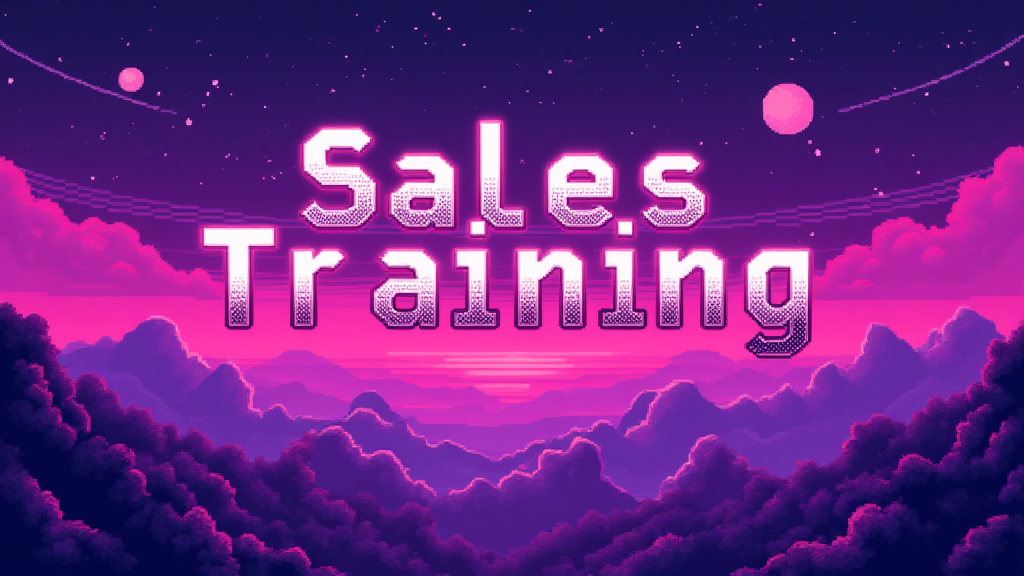Sales Training: Boosting Sales Force Performance

Published on: October 01, 2024
Sales training is a structured educational process designed to enhance the skills, knowledge, and effectiveness of sales professionals. It equips sales teams with the necessary tools and techniques to improve their performance, close more deals, and contribute to the company's revenue growth. 🚀
Why Sales Training Matters
Effective sales training is crucial for organizations aiming to maintain a competitive edge in today's dynamic business landscape. Here's why it's essential:
- Improves sales performance and productivity
- Enhances customer relationships and satisfaction
- Reduces employee turnover and boosts morale
- Keeps sales teams updated on industry trends and best practices
- Aligns sales strategies with company goals
Key Components of Effective Sales Training
A comprehensive sales training program typically covers the following areas:
1. Product Knowledge 📚
Thorough understanding of the company's offerings, features, and benefits.
2. Sales Techniques 💼
Prospecting, qualifying leads, handling objections, and closing techniques.
3. Communication Skills 🗣️
Active listening, persuasive speaking, and effective presentation skills.
4. Customer Relationship Management (CRM) 🤝
Using CRM tools to manage customer interactions and data effectively.
5. Time Management ⏰
Prioritizing tasks and optimizing daily activities for maximum productivity.
Sales Training Methods
Organizations employ various training methods to cater to different learning styles and needs:
| Method | Description | Benefits |
|---|---|---|
| Classroom Training | Traditional face-to-face instruction | Interactive, immediate feedback |
| Online Courses | Self-paced e-learning modules | Flexible, cost-effective |
| Role-playing | Simulated sales scenarios | Practical application, builds confidence |
| Mentoring | One-on-one guidance from experienced sales professionals | Personalized learning, knowledge transfer |
| Workshops | Focused sessions on specific skills or topics | In-depth learning, peer interaction |
Measuring the Impact of Sales Training
To ensure the effectiveness of sales training programs, organizations should track key performance indicators (KPIs) such as:
- Increase in sales revenue
- Improved conversion rates
- Reduction in sales cycle length
- Enhanced customer satisfaction scores
- Higher employee retention rates
By regularly assessing these metrics, companies can refine their training programs and maximize their return on investment. For more insights on tracking success, check out sales training metrics.
Challenges in Sales Training
While sales training offers numerous benefits, organizations may face challenges in its implementation:
- Resistance to change from experienced sales professionals
- Difficulty in measuring the direct impact of training on sales performance
- Keeping training content up-to-date with rapidly evolving market trends
- Balancing training time with active selling time
- Ensuring consistent application of learned skills in real-world scenarios
To overcome these challenges, companies should focus on creating a culture of continuous learning and improvement, tailoring training programs to individual needs, and leveraging technology to enhance the training experience.
The Future of Sales Training
As technology continues to evolve, so does the landscape of sales training. Emerging trends include:
- Virtual Reality (VR) and Augmented Reality (AR) for immersive training experiences
- Artificial Intelligence (AI) for personalized learning paths and real-time coaching
- Microlearning modules for bite-sized, on-demand training
- Gamification to increase engagement and motivation
- Social learning platforms for peer-to-peer knowledge sharing
By embracing these innovative approaches, organizations can create more effective and engaging sales training programs that drive results.
As you consider implementing or improving your sales training program, ask yourself:
- How well does our current sales training align with our business objectives?
- Are we leveraging the most effective training methods for our sales team?
- How can we measure and improve the ROI of our sales training efforts?
- What emerging technologies can we incorporate to enhance our training program?
- How can we create a culture of continuous learning and improvement in our sales organization?
















